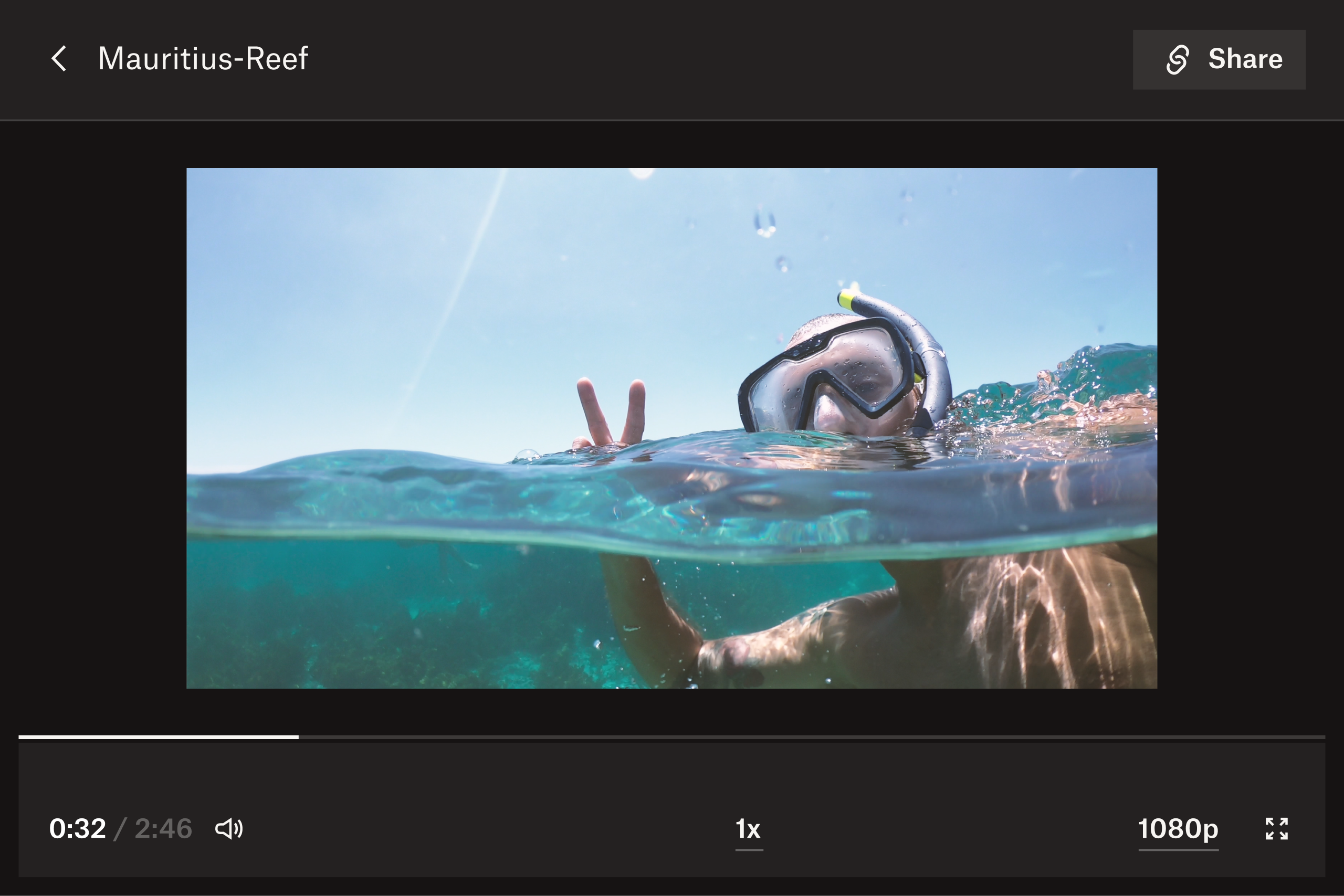How to become a video editor
Considering a career change? There’s no better time to become a video editor than now. Discover our top tips for starting a professional video editing career.

It seems like new streaming services – and the TV programmes and films they produce – are being released all the time. As TV and film content becomes more in demand, more video editors are needed to work on these projects – not only in cutting together raw footage, but also on special effects and other editing techniques.
And it’s not just roles in media and entertainment that need filling. Many companies are now channelling their marketing efforts into more engaging video content to be shared on their websites, social media profiles and elsewhere.
In fact, the U.S. Bureau of Labor Statistics predicts that employment for film and video editors will increase by 9% between 2022 and 2032 – faster than the average for all occupations.
So, if you’re passionate about video editing and want to pursue it full-time, now is a great time to launch this career path.
What do video editors do?
Video editors take raw video and audio footage, graphics, music, sound effects and visual effects, and edit these segments together to form the final video presented to an audience.
Professional video editing is very different from amateur editing on your phone. Video editors work with specialist software, often handling hundreds of hours of footage, to trim and polish the video into the finished format.
They also collaborate with many other creatives to reach that final edit – from directors and producers to colourists, voice-over artists and other members of a production crew.

What skills does a video editor need to have?
You don’t need a university degree or qualification to become a video editor – just a passion for the job and a willingness to continually learn and grow. However, there are a few basic skills that are essential to being a successful video editor:
- Creativity: you’ll need a strong grasp of aesthetics and visual storytelling, and an understanding of how the story will look to the desired audience.
- Attention to detail: a pet peeve of many eagle-eyed film and TV viewers is a lack of continuity in the scene they’re watching. It’s your responsibility to prevent these flaws from making the final cut!
- Flexibility: there could be last-minute decisions to cut a particular scene or element from the video, or post-production may be delayed while new footage is shot.
- Problem solving: video editing is often like putting together a puzzle, but sometimes the pieces might not align like you thought they would, such as a scene that’s too long and needs cutting down without sacrificing the narrative.
- Communication and teamwork: videos require a lot of collaboration and feedback from different stakeholders to ensure the project meets expectations and is delivered on time.
How to become a professional video editor
Here are our top tips to becoming a video editor – with little or no experience.
Practise, practise, practise
Understanding the basics of video editing and becoming familiar with industry-standard tools and software are essential to joining the industry. Work on personal projects to develop your skills in:
- The interface of your chosen video editing software, be it Adobe Premiere Pro, DaVinci Resolve or Final Cut Pro
- Importing, organising and filtering through video and audio footage
- Cutting, trimming and splicing footage
- Colour correction and grading
- Using visual and audio effects and transitions
- Exporting the final cut
You could participate in online communities, forums or workshops, or join online courses or training programmes to gain more experience and learn from other editors.
Consider an entry-level position
Learning on the job is the best way to access the training needed to make it as a video editor and gain experience in the industry.
If you’re just starting out or want to pivot to a career as a video editor after working in a different sector, then a good way to establish yourself is through an apprenticeship, internship or entry-level in-house role at a production company or creative agency.
You’ll have less responsibility for the time being, but will have access to a wealth of experience from your colleagues. You could even reach out to editors further up the hierarchy to act as mentors and provide feedback on any projects you’ve been involved with (or worked on in your own time).
Build your portfolio
Select your best work from your personal projects and professional assignments, and build them into a portfolio or show reel that you can present to potential clients or employers. A portfolio is designed to demonstrate your video editing skills and experience, so should evolve as your abilities become more advanced and your confidence grows.
Factors you should consider demonstrating in your portfolio include:
- Different types of video (and audio) content, such as music videos, documentaries, films, adverts and tutorials
- A variety of editing styles and techniques
- Different types of footage, including footage filmed on different cameras and in a range of lighting conditions
- Videos for different audiences on social media platforms, such as YouTube, LinkedIn or TikTok
Remember that your portfolio is the first impression that a potential employer will have of you, so it should be well organised, up to date and accessible.
Grow your network
Make connections with directors, other editors and industry professionals to learn about the latest job or training opportunities and discuss industry trends. You may even want to set up a YouTube channel to show off your work to a wider audience!
Sending out your portfolio and applying for jobs will inevitably mean dealing with rejections. But with a video review tool like Dropbox Replay, you could ask for frame-accurate feedback so that you know where to improve and how to refine your skills.

FAQs about being a video editor
What should I learn first in video editing?
The most important things to nail down as a video editor are your technical skills – make sure you know your L-cuts from your J-cuts, and how to pace a video appropriately.
Do you need qualifications to be a video editor?
No, you don’t need a qualification to get a video editing job. However, for some people it may be beneficial to undertake a related course or bachelor’s degree to learn from professionals and experts. This tuition will help you pick up the basics, refine your technique and understand the broader context of video today. Some useful subjects to consider include:
- Film studies or filmmaking
- Fine arts
- Performing arts
- Communications
- Cinematography
- Graphic design
- Broadcasting
Are video editors still in demand?
Video editors are more in demand than ever. There are opportunities not only in the media and entertainment industry, but also in marketing and communications as more organisations move to digital-first efforts that leverage the power of online videos to attract and engage customers.
Kick-start your video editing career
Dropbox gives aspiring video editors everything they need to get their careers off the ground – right from your Dropbox account.
Tools like Dropbox Replay are designed to help you keep your creative workflows in one place. It seamlessly integrates with your favorite editing tools like Adobe Premiere Pro and After Effects and enables you to get frame-accurate feedback from your peers.